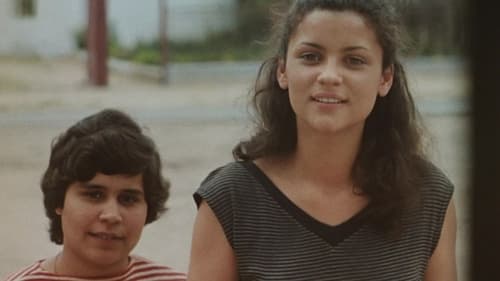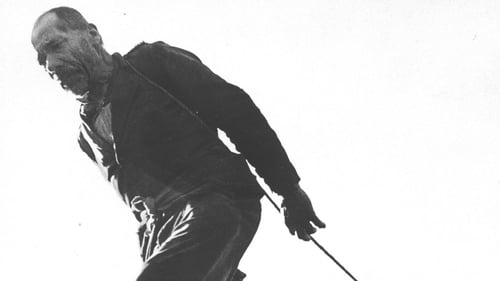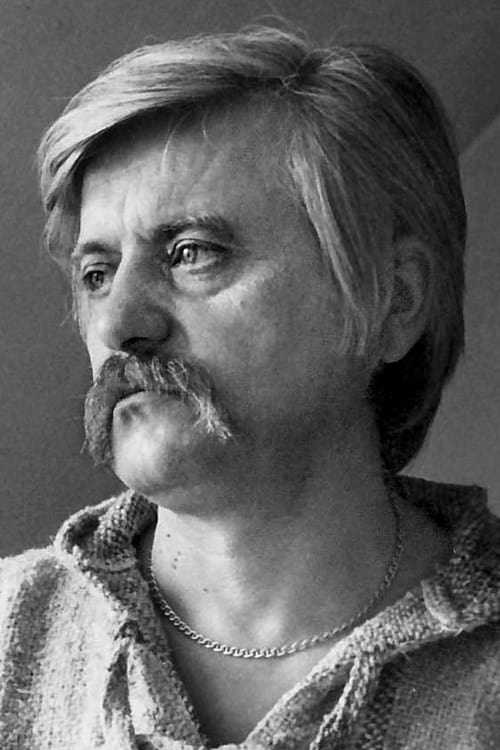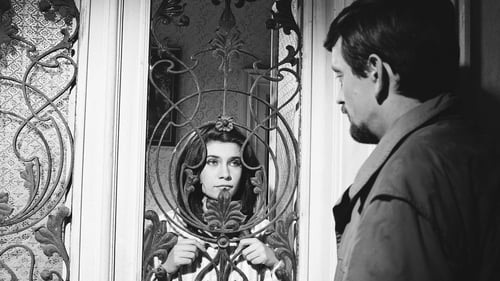Dušan Hanák
Birth : 1938-04-27, Bratislava, Slovak Republic
History
Dušan Hanák (April 27, 1938 in Bratislava) is a Slovak film director. He graduated from the FAMU (Film and TV School of the Academy of Performing Arts) in Prague in 1965.

Self
An epic exploration of the Czechoslovak New Wave cinema of the 1960s and 70s, structured around a series of conversations with one of its most acclaimed exponents - Closely Observed Trains director Jiří Menzel.

A tribute to Martin Slivka, one of the most important personalities of Slovak cinematography and culture. He was the creator of Slovak documentary ethnographic film, director, screenwriter, dramaturgist, film theoretician, pedagogue, author and ethnograph, but mainly – exceptional person. This documentary is not only a remembrance of maestro Slivka through words of his close friends and colleagues, but also an attempt to slightly uncover the secret of his rich life and work.

Writer
Dušan Hanák's final film: a bitter documentary about the history of Communism in Czechoslovakia.

Director
Dušan Hanák's final film: a bitter documentary about the history of Communism in Czechoslovakia.

Self
This film is a record of the first Yamagata International Documentary Film Festival. It reflects the various ways the festival was given shape by nascent global changes embodied by Perestroika, the Tiananmen Square massacre, and many other contemporaneous events.

Director
In Bratislava at the end of the 1980s, two estranged sisters try to make up with each other while balancing their private lives and careers.

Writer
The drama called I Love, You Love was made in 1980 but because of the absurd ideological ban, the film entered cinemas nine years later. Pišta is an unmarried man who works at a freight wagon which carries letters and parcels. Alcohol helps him to overcome his handicap of being short and not good-looking. He wishes he had a woman, but the woman he really wants, ageing Viera who reloads the cargoes, has a soft spot for another man. So, Pišta has nobody and nothing, except for senile mother who sometimes fails to recognize him. The film received Silver Bear for Best Director at the International Film Festival in Berlin.

Director
The drama called I Love, You Love was made in 1980 but because of the absurd ideological ban, the film entered cinemas nine years later. Pišta is an unmarried man who works at a freight wagon which carries letters and parcels. Alcohol helps him to overcome his handicap of being short and not good-looking. He wishes he had a woman, but the woman he really wants, ageing Viera who reloads the cargoes, has a soft spot for another man. So, Pišta has nobody and nothing, except for senile mother who sometimes fails to recognize him. The film received Silver Bear for Best Director at the International Film Festival in Berlin.

Screenplay
This film is a psychological study of a woman who chooses solitude as an escape from the duplicity and emotional barrenness of the men around her.

Director
This film is a psychological study of a woman who chooses solitude as an escape from the duplicity and emotional barrenness of the men around her.

Screenplay
Jakub, a dreamer and budding magician, juggles between parcels and services rendered to the villagers. His eyes cross that of the beautiful gypsy Jolanka. Together, they will try to live a first and big love, despite the pressure of their respective communities.

Story
Jakub, a dreamer and budding magician, juggles between parcels and services rendered to the villagers. His eyes cross that of the beautiful gypsy Jolanka. Together, they will try to live a first and big love, despite the pressure of their respective communities.

Director
Jakub, a dreamer and budding magician, juggles between parcels and services rendered to the villagers. His eyes cross that of the beautiful gypsy Jolanka. Together, they will try to live a first and big love, despite the pressure of their respective communities.

Writer
A visual essay on the forgotten parts of Eastern Europe. The outskirts here are a Slovakian town in the Tatra Mountains. Though censored for 17 years, Dusan Hanáks poetic visual essay is not a political or even social film. It goes to far deeper and more fundamental levels of human experience. Inspired by the photographs of Martin Martinek, the films power lies in its unusual portraits of people whose raw visual beauty radiates from their very souls.

Director
A visual essay on the forgotten parts of Eastern Europe. The outskirts here are a Slovakian town in the Tatra Mountains. Though censored for 17 years, Dusan Hanáks poetic visual essay is not a political or even social film. It goes to far deeper and more fundamental levels of human experience. Inspired by the photographs of Martin Martinek, the films power lies in its unusual portraits of people whose raw visual beauty radiates from their very souls.

Writer
This film is a playful depiction of the festivities around the performance If All Trains of the World by Alex Mlynárčik on June 12, 1971. Deň radosti shows Hanák using the 'inter-genre' style of documentary which made his feature film Obrazy stareho sveta (1971) a masterpiece. Still photography, live action, interviews, old etchings and archive footage of old train journeys are skilfully blended to create a sympathetic and humorous portrait of the romance of an old steam train and the joy of artists and the general public in participating in this children's game for adults. Once again, the avant-garde is imaginatively used to eulogise over traditional values and the past. Deň radosti is important not just for the considerable pleasure it brings; it is the first of a series of films in which artists use film to document happenings. (http://www.ce-review.org/kinoeye/kinoeye3old.html)

Director
This film is a playful depiction of the festivities around the performance If All Trains of the World by Alex Mlynárčik on June 12, 1971. Deň radosti shows Hanák using the 'inter-genre' style of documentary which made his feature film Obrazy stareho sveta (1971) a masterpiece. Still photography, live action, interviews, old etchings and archive footage of old train journeys are skilfully blended to create a sympathetic and humorous portrait of the romance of an old steam train and the joy of artists and the general public in participating in this children's game for adults. Once again, the avant-garde is imaginatively used to eulogise over traditional values and the past. Deň radosti is important not just for the considerable pleasure it brings; it is the first of a series of films in which artists use film to document happenings. (http://www.ce-review.org/kinoeye/kinoeye3old.html)

Story
A story of a man threatened by a fatal illness evaluating his life (the number 322 in the film title stands for the diagnosis of one kind of cancer). He understands his illness as a form of punishment for his cruel deeds in the 1950s. In the face of reality and his efforts to cleanse himself he hits a barrier of indifference, lack of interest, and individual and collective selfishness. He has to find his own reconciliation with his illness and his past and present life.

Screenplay
A story of a man threatened by a fatal illness evaluating his life (the number 322 in the film title stands for the diagnosis of one kind of cancer). He understands his illness as a form of punishment for his cruel deeds in the 1950s. In the face of reality and his efforts to cleanse himself he hits a barrier of indifference, lack of interest, and individual and collective selfishness. He has to find his own reconciliation with his illness and his past and present life.

Director
A story of a man threatened by a fatal illness evaluating his life (the number 322 in the film title stands for the diagnosis of one kind of cancer). He understands his illness as a form of punishment for his cruel deeds in the 1950s. In the face of reality and his efforts to cleanse himself he hits a barrier of indifference, lack of interest, and individual and collective selfishness. He has to find his own reconciliation with his illness and his past and present life.

Writer

Writer
A traditional Advent mass filmed in a church in the historical town of Spisska Sobota (Northern Slovakia), featuring authentic liturgical texts and songs.

Director
A traditional Advent mass filmed in a church in the historical town of Spisska Sobota (Northern Slovakia), featuring authentic liturgical texts and songs.

Director
A documentary féerie about the problems with tourists from abroad. How foreigners “invade” our homeland. A series of minute observations on life under so-called “real socialism” provokes sparkling ironic and satirical commentary—a broadside against the bankrupt Communist system.

Writer
A documentary féerie about the problems with tourists from abroad. How foreigners “invade” our homeland. A series of minute observations on life under so-called “real socialism” provokes sparkling ironic and satirical commentary—a broadside against the bankrupt Communist system.

Writer
A documentary about the cycle of human life and the eternity of nature.

Director
A documentary about the cycle of human life and the eternity of nature.

Writer
Documentary film about apprentice youth about to enter real life.

Director
Documentary film about apprentice youth about to enter real life.

Writer
Poetic documentary about works of several artists from ideas to “births” of works of art.

Director
Poetic documentary about works of several artists from ideas to “births” of works of art.

Writer
Documentary portrait of the life of circus artists during their winter break.

Screenplay
A documentary about the artistic and verbal expressions of mentally ill people.

Director
A documentary about the artistic and verbal expressions of mentally ill people.

Director
Documentary portrait of the life of circus artists during their winter break.






